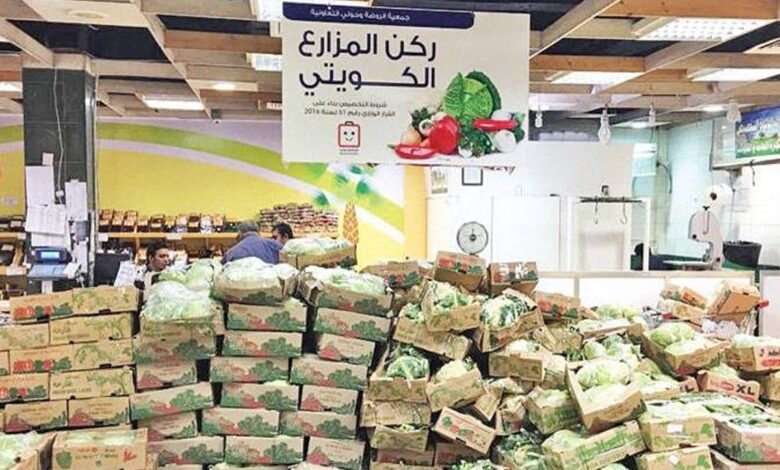Ministry to promote Kuwait’s local agricultural products in cooperatives

The Minister of Social Affairs, Family, and Childhood Affairs, Dr. Amthal Al-Huwailah, has issued a ministerial decision to support the promotion of local agricultural products in cooperative societies. This initiative aligns with the recommendations of the Council of Ministers to enhance local production, strengthen food security, support Kuwaiti farmers, and increase the presence of national products in cooperative markets.
In a press statement on Monday, the Ministry announced that the decision requires cooperative societies to source at least 75% of their agricultural product needs from local producers. Purchases must be made directly through participation in daily auctions at approved marketing outlets, using computerized invoices to ensure transparency and enhance the efficiency of buying and selling operations.
The Ministry explained that the decision requires cooperative societies to appoint a representative from their staff to attend daily auctions, with priority given to Kuwaiti nationals, supporting local employment in this sector.
The cooperative societies must allocate 30% of the total area of central markets to display local agricultural products for the benefit of the Farmers Union. This measure aims to enhance marketing opportunities for local production and ensure its continuous availability to consumers.
The Ministry stated that the decision mandates cooperative societies to display clear price lists for all local products, ensuring transparency between consumers and farmers.
As part of efforts to support national products, cooperatives will cover the cost of daily local product purchases, provided that it does not exceed 5% of total weekly purchases. Additionally, a designated individual will be assigned to oversee this process and implement necessary measures to minimize losses.
The Ministry highlighted that the decision sets a maximum profit margin of 20% on local agricultural products to ensure fair pricing for consumers. Additionally, local products will be exempt from conditions and restrictions applied to other products, making it easier to market them and expanding opportunities for farmers to sell their produce.
Moreover, the Ministry emphasized that the administrative supervisor in each cooperative society will be responsible for reviewing daily purchase invoices to ensure compliance with the decision.
Additionally, supervisors must submit monthly reports to the relevant department in the Ministry, detailing any violations, actions taken against non-compliant associations, and recommendations to address regulatory gaps.
The Ministry stated that the decision also calls for the formation of a joint committee comprising representatives from the Ministry of Social Affairs, the Ministry of Commerce and Industry, the Public Authority for Agriculture and Animal Resources, and the Union of Cooperative Societies.
Importantly, chaired by the Undersecretary of the Ministry of Social Affairs, the committee will oversee the implementation of the decision, submit monthly reports on compliance levels, evaluate its impact, and provide recommendations for future amendments to further strengthen the promotion of local products in cooperative societies.
The Ministry clarified that the new decision officially repeals Ministerial Resolution No. (115) of 2022, which previously governed the promotion of local agricultural products in cooperative societies, along with any conflicting provisions. The new regulations take effect immediately upon issuance and publication in the Official Gazette, requiring all relevant parties to comply with its implementation.
Furthermore, the Ministry emphasized that this decision aligns with government efforts to promote sustainability in the agricultural sector, stimulate the local economy, and increase the presence of national products in cooperative markets. These measures aim to support self-sufficiency and strengthen food security.
Source: Al Jarida












